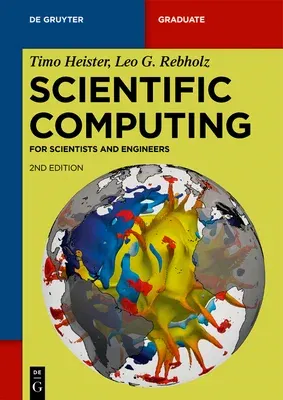Timo Heister
(Author)Scientific Computing: For Scientists and EngineersPaperback, 3 April 2023

Qty
1
Turbo
Ships in 2 - 3 days
In Stock
Free Delivery
Cash on Delivery
15 Days
Free Returns
Secure Checkout

Part of Series
de Gruyter Textbook
Print Length
184 pages
Language
English
Publisher
de Gruyter
Date Published
3 Apr 2023
ISBN-10
3110999617
ISBN-13
9783110999617
Description
Product Details
Authors:
Book Format:
Paperback
Country of Origin:
DE
Date Published:
3 April 2023
Dimensions:
24.41 x
16.99 x
1.02 cm
ISBN-10:
3110999617
ISBN-13:
9783110999617
Language:
English
Location:
Berlin/Boston
Pages:
184
Publisher:
Series:
Weight:
303.91 gm